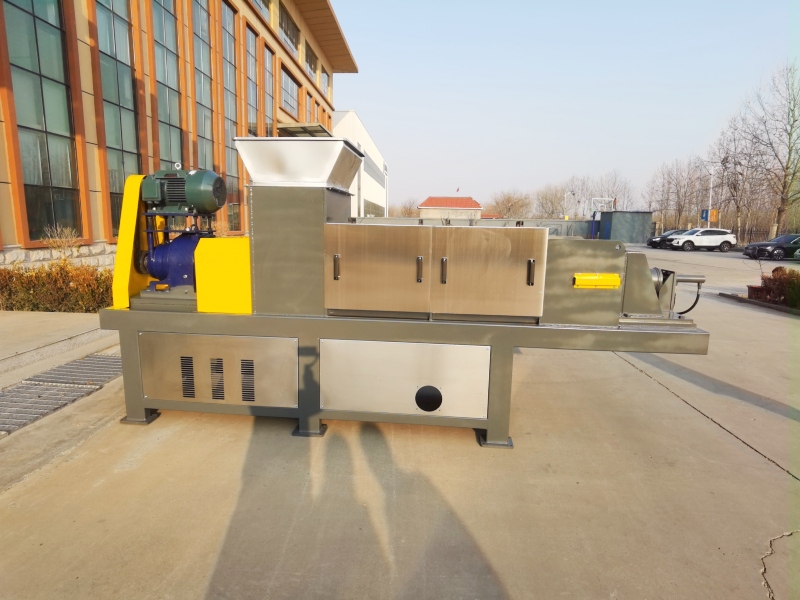
The demand for renewable energy sources has led to extensive research and development in the field of biomass energy. Biomass, derived from organic materials, holds immense potential as a sustainable energy resource. However, one of the challenges in harnessing this potential lies in efficient biomass dewatering. Traditional methods are often time-consuming and energy-intensive, hindering the large-scale adoption of biomass as a viable energy source. In response to this challenge, innovative biomass dewatering machines have emerged, promising to revolutionize the landscape of green energy production.
Features of Biomass Dewatering Machines
1.High Efficiency: Modern biomass dewatering machines employ advanced technologies such as centrifugation and mechanical pressing, ensuring high efficiency in separating water from biomass materials.
2.Energy Conservation: Unlike conventional methods, these machines are designed to optimize energy usage, minimizing operational costs and environmental impact.
3.Customizability: Biomass dewatering machines come in various sizes and capacities, allowing flexibility in processing different types of biomass materials, from agricultural residues to municipal waste.
4.Low Maintenance: These machines are engineered for durability and require minimal maintenance, enhancing their longevity and cost-effectiveness.
5.Environmental Friendliness: By enabling the efficient utilization of biomass materials, these machines contribute significantly to reducing greenhouse gas emissions, promoting a greener environment.
Applications in Green Energy Production
Biofuel Production: Biomass dewatering machines play a crucial role in biofuel production by extracting moisture from feedstock materials, enhancing the efficiency of subsequent processes like fermentation and distillation.
Biogas Generation: In anaerobic digestion processes, dewatered biomass serves as an ideal substrate for biogas production. Biomass dewatering machines ensure the optimal moisture content necessary for efficient methane production.
Biomass Power Plants: Biomass, when dried efficiently, becomes a valuable fuel for power plants. Dewatering machines prepare biomass materials for combustion, contributing to the generation of clean and sustainable electricity.
Fertilizer Production: Dewatered biomass can be processed into organic fertilizers, promoting eco-friendly agricultural practices and reducing reliance on chemical fertilizers.
Conclusion
The development and widespread adoption of biomass dewatering machines mark a significant milestone in the renewable energy sector. By addressing the challenges associated with moisture removal from biomass materials, these machines facilitate the efficient production of biofuels, biogas, and electricity, promoting a sustainable and greener future. As technology continues to advance, further innovations in biomass dewatering machines are anticipated, driving the transition towards a more environmentally friendly energy landscape.




If your company wants to establish a business relationship with us, please briefly describe the cooperation intention and send an email to:chuantaiscrewpress@gmail.com























































































![[list:title]](/static/upload/image/20240528/1716877114510915.jpg)